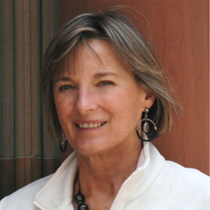
Olive Schreiner’s various writings, both fictional and non-fictional, made an extraordinary contribution to late 19th and early 20th century feminism, not least in her increasing and groundbreaking interest in the social intersections of gender, race and class. Schreiner’s early reading in evolutionary biology, sociology and the Romantic tradition, coupled with her knowledge and observation of the South African past and present, gave a unique flavour to her fictional treatment of the condition of women, as well as her vision of a more productive, racially equitable and harmonious world unfettered by gender difference.
Born of missionary parents in 1855, and schooled at home, Schreiner continued educating herself during her employment as a governess in the Cape Colony, at which time (from the mid-1870s) she drafted her first two novels: Undine and The Story of an African Farm, as well as parts of what would later become From Man to Man. During her first years in Europe, she published The Story of an African Farm (1883) and worked in earnest on From Man to Man, continuing writing and revising it after her return to South Africa in 1889. After she died in 1920, her husband Samuel Cronwright-Schreiner produced the first biography and collection of her letters, as well as seeing to the publication of Undine and From Man to Man, now with the subtitle or, Perhaps Only.
The final chapter was apparently unpenned and revisions remained incomplete. From Man to Man is marked by internal contradictions which may reflect the changes Schreiner herself underwent through its extraordinarily long gestation. However, Schreiner considered the novel to be her best work, and intellectually more mature than The Story of an African Farm. Professor Driver will discuss this work in the context of Schreiner’s development as a writer and thinker. She will also briefly discuss the proposed second edition of the novel, since the first edition may be regarded as flawed.
Dorothy Driver was born in South Africa and is Professor of English at the University of Adelaide, Australia. She is also Emerita Professor at the University of Cape Town, where she retains an Honorary Research Associateship. Driver’s major research interests have been in the constructions and representations of race and gender, both under and after apartheid, and in writing by women. She has published works on Nadine Gordimer, Bessie Head, Noni Jabavu, Njabulo Ndebele, Olive Schreiner, Pauline Smith, Yvonne Vera and Zoë Wicomb. Driver has edited and co-edited a number of books, among them the historical anthology Women Writing Africa: the Southern Region, and is currently finalising a new edition of Schreiner’s From Man to Man.
This lecture will take place on Thursday 26 September at 17:30 at Hiddingh Hall, University of Cape Town (UCT) Hiddingh Campus, Orange Street, Cape Town; and is free. Refreshments will be served from 17:00; no booking is necessary. For more information on the Great Texts series, contact the GIPCA office on 021 480 7156 or fin-gipca@uct.ac.za.
Dorothy Driver audio recording available for download.
Venue: Hiddingh Hall
Address: Google Map UCT Hiddingh Campus, 31 Orange Street, Cape Town, Western Cape, 8001, South Africa
